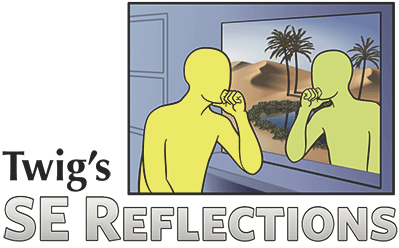Summary: If you look up Stress and Trauma independently on Google you get dramatically different results:
- Stress = 590,000,000
- Trauma = 133,000,000
I think this says something about where the dominant culture directs their attention and how they think of their situation. When marketing our work we’d be wise to be conscious of this.
In Peter Levine’s original dissertation he used the words Accumulated Stress for what SE Practitioners take for granted as trauma. But in the dominant culture, trauma is so many different things and at the same time, it’s rarely anything the average person wants to admit to having themselves other than in the hyperbolic sense like: “I was completely traumatized by that movie.”
It’s rare for the average “work-a-day” person to want to admit to being traumatized. The notion comes along with the stigma of shell-shocked veterans hiding in the forest afraid to make contact with the rangers and park visitors. Socially we go into a special category the moment we or others think of us as traumatized. Put it this way, it’s not something you’d like to admit to your potential employeer or graduate school admissions committee. Nor likely to most of your friends.
But who isn’t stressed? Who isn’t jumping to admit that they have “accumulated stress?” Who isn’t interested in negotiating their stress better?
The unfortunate truth is that those who are willing to self-identify as being traumatized are often people in rather dire situations. Those who have discovered that more help comes to them the more distressed they are or those who have moved into such fixity that they can’t deny the truth that they’re “traumatized.”
As much as I hope that we’re all providing some kind of assistance to people in such need the truth of being a working professional is that unless supported by an agency, these people are unlikely to pay our full fee and that’s a factor of our own needs. In short we’re looking for client’s who can afford to pay our full fee and those people are generally fairly well functioning in society and thus all the less likely to name themselves as being “traumatized.” After all, they’re functioning “well enough.”
Of course there is the higher functioning person who has been reading, learning and catching up on the nervous system’s primary role in the causation of everyday symptoms of distress due to incomplete stress response events. You might think of them as your “ideal client” since they’re hip to the issues at hand. But really, these people are quite rare and can hardly be counted on to help pay your bills.
Still there are people, everywhere, who are functioning well enough: working 20-60 hours a week and more or less doing “okay” but in so many ways they’re not. They’re clutching the steering wheel harder than necessary when driving in the rain. They’re snapping at their partner when they come home 10 minutes late after an annoying day at the office. They’re feeling like they can barely get up out of bed in the morning without promise of bottomless cups of coffee and dropping Klonopin about 11pm in order to knock them off line for a few hours of sleep again at night. They’re not ready to wear the banner of trauma but they are stressed and they know it.
Since your communication matters to people, particularly when you’re helping them understand what you do, you may want to consider: is your work about helping people with Trauma or with Accumulated Stress? And who is likely to say “that’s me” depending on what phrase you use?
PS. Here are a few of my more common lines around this:
- “I help people’s bodies and brains work better under stress.”
- “I help people’s bodies and brains deal better with stress.”
- “I help people with trauma, technically that’s ‘Accumulated Stress’. It’s good work, after all, who doesn’t feel like they’ve accumulated stress?”

